Table of Contents:
Irene Käosaar: new times and new challenges
Estonian language-learning opportunities for Ukrainian war refugees
Estonia is supporting returnees in a number of ways
We can recommend materials for learning Estonian independently!
A film and book will be released on the initiative of the Estonian Language House in Narva
The self-service environment of the Integration Foundation is now open
The Integration Foundation is looking forward to applications for integration awards
Information days on migration, adjustment, and integration at county centres
There are several ongoing public procurements and calls for proposals
Irene Käosaar: new times and new challenges
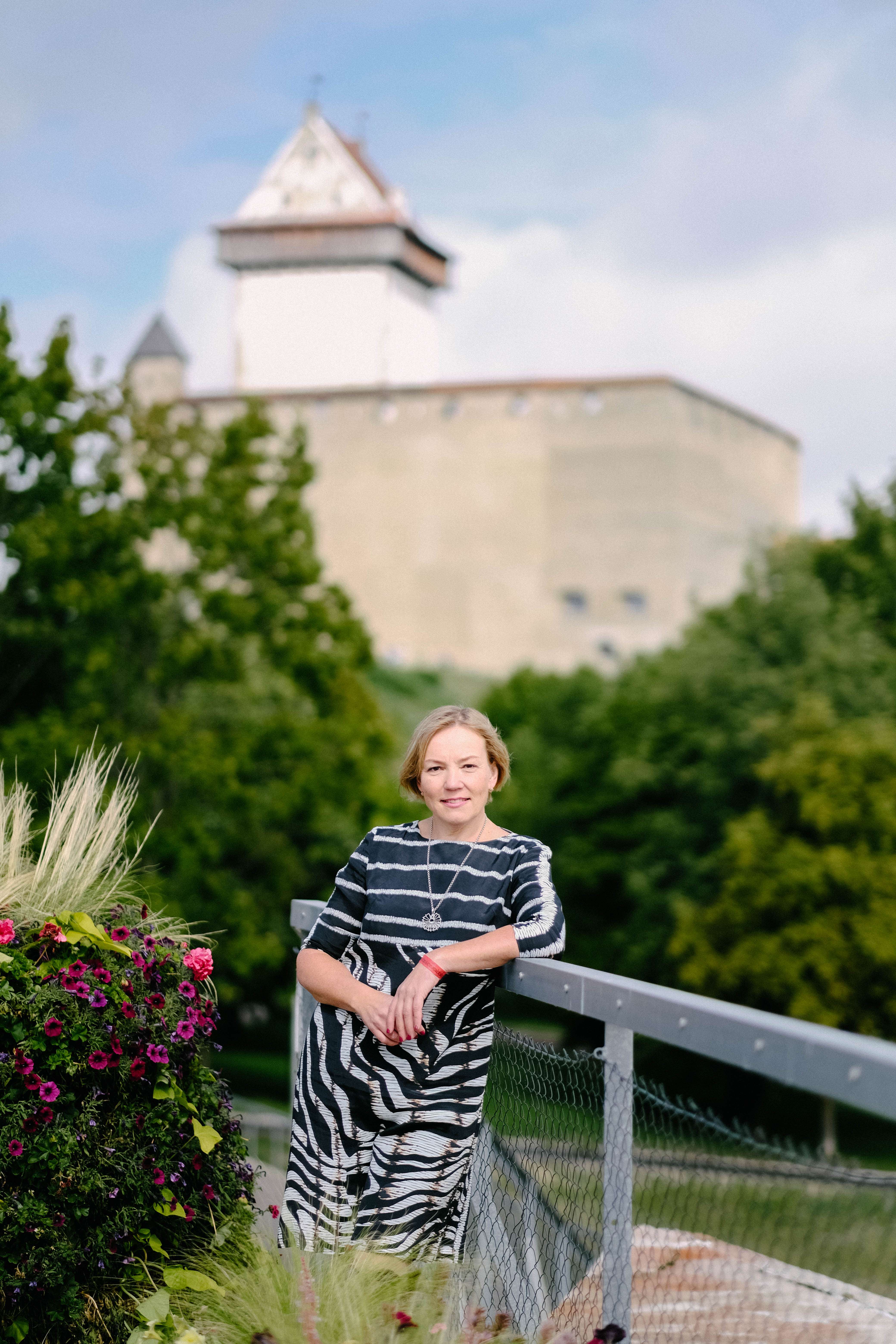
Unfortunately, the world will never be the same after 24 February. The everyday work of the Integration Foundation has also changed in relation to the arrival of Ukrainian refugees. We are hosting a record number of free Estonian language courses at the A1 level – from June, we will be offering 10,000 free spots for language learning with the support of our partners. In cooperation with our partners, we will coordinate sharing information with those arriving from Ukraine, so we would all be in a single information space here in Estonia as soon as possible.
It is also very important to continue our current endeavours so that the permanent residents of Estonia could continue to participate in language learning and our other activities, similar to the situation before February, so we will be continuing all our activities. The broader goals of integration, i.e. supporting a connected society, have not changed, so it is important to keep all residents of Estonia in a singular cultural and customary space.
My time in the Integration Foundation is coming to an end. I began working at this establishment in 2000, and in the years 2007 – 2017 (when I worked at the Ministry of Education and Research), the foundation was one of my most important partners, I was also a member of the foundation’s board. Since 2017, I have been head of the foundation. I made a very important and difficult decision for myself and will begin working towards establishing the Narva Estonian State High School. Integration is a topic close to my heart and education is a cornerstone in the field – so, I will stay in the field, but will take on a new challenge starting from June.
Estonian language-learning opportunities for Ukrainian war refugees
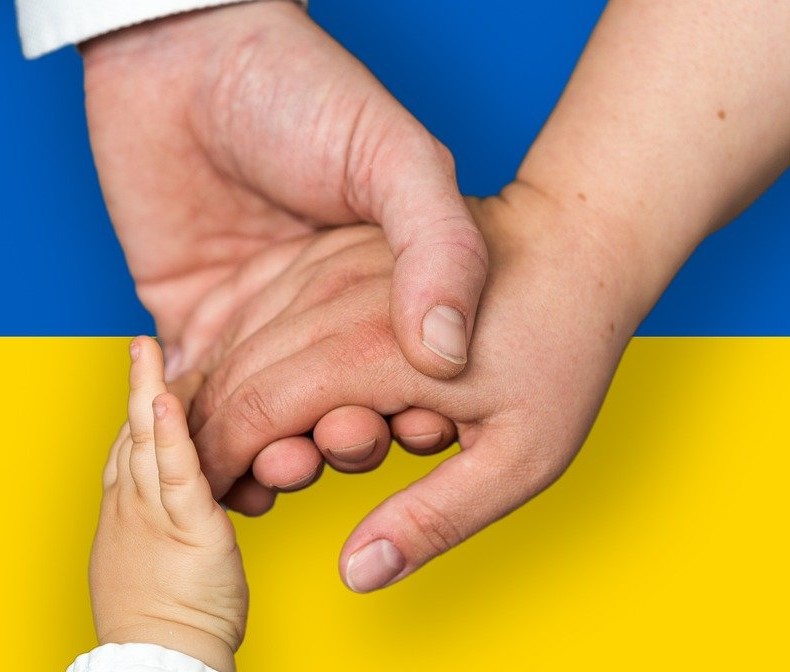 The Integration Foundation and our Estonian Language Houses are preparing opportunities for the refugees who have arrived from Ukraine to learn Estonian on a basic level and offer counselling in language learning as well as adapting.
The Integration Foundation and our Estonian Language Houses are preparing opportunities for the refugees who have arrived from Ukraine to learn Estonian on a basic level and offer counselling in language learning as well as adapting.
From summer, up to 10,000 recipients of temporary protection will be able to take part in A1-level Estonian language courses as well as an adaptation programme. It is possible to sign up for Estonian courses after having received a residence permit on the basis of temporary protection and after the Police and Border Guard Board have notified the recipient by email regarding the opportunity to participate in language learning. In addition to teaching Estonian at the A1 level, the state will begin offering a one-day adaptation programme to the recipients of temporary protection starting from summer.
Various free portals and applications can be used to learn Estonian independently. Estonian Language Houses offer web-based support to the war refugees who have begun learning Estonian independently and are in need of practical advice related to planning language learning, helpful materials, language-learning techniques, and staying motivated. Please contact the Integration Foundation’s counsellors by calling the free number +372 800 9999 or writing an email to info@integratsiooniinfo.ee to take part in online counselling groups.
The recipients of temporary protection are also welcome to the Integration Foundation’s counselling and they will be helped in choosing the most suitable opportunities for language learning and practicing. In addition, the counsellors will offer advice on other topics related to adapting, including regarding corresponding services and support. For counselling, we ask you to set a time by sending us an email at info@integratsiooniinfo.ee or by calling the free number +372 800 9999 (when calling from abroad, call +372 6599025). We will conduct consultations both face to face and through virtual channels (Skype, Zoom, Teams).
The Estonian state offers a safe place to stay, education, support in finding work, and various other services to the Ukrainian citizens and their family members who have fled the war. The related info is available at kriis.ee. Additional information on the Integration Foundation’s services for war refugees can be found HERE.
Estonia is supporting returnees in a number of ways![]()
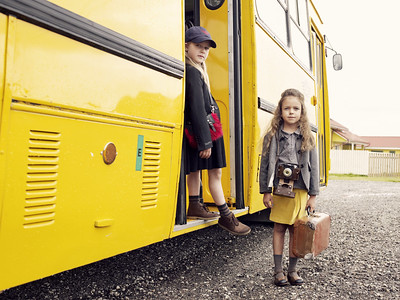 The Integration Foundation provides information and advises the returnees who are interested in and willing to return to live in Estonia, as well as those who have already begun a new life in Estonia.
The Integration Foundation provides information and advises the returnees who are interested in and willing to return to live in Estonia, as well as those who have already begun a new life in Estonia.
Almost 7000 Estonians return to their homeland every year. In February, the criteria for receiving the returning benefit designed for the families with children who need financial assistance were relaxed. Unlike before, those who have only lived away from Estonia for seven years can also apply for the benefit – this threshold was previously ten years. The requirement of having stayed abroad for a long time does not apply to people up to 40 years of age who have completed postgraduate and doctoral studies abroad – the age limit used to be 30 years.
The Integration Foundation continues to organise experience-sharing meetings to provide the necessary information and support for better organising one’s life after returning to Estonia. Returnees also share their experience of adjusting in Estonia after returning and contacts can be made with people of similar backgrounds at the meetings. The free online meetings are organised twice a month and will be organised until June based on initial plans. Information and registration: www.integratsioon.ee/en/meetings.
The language house in Narva is offering diverse opportunities for learning and expanding to the Lüganuse rural municipality
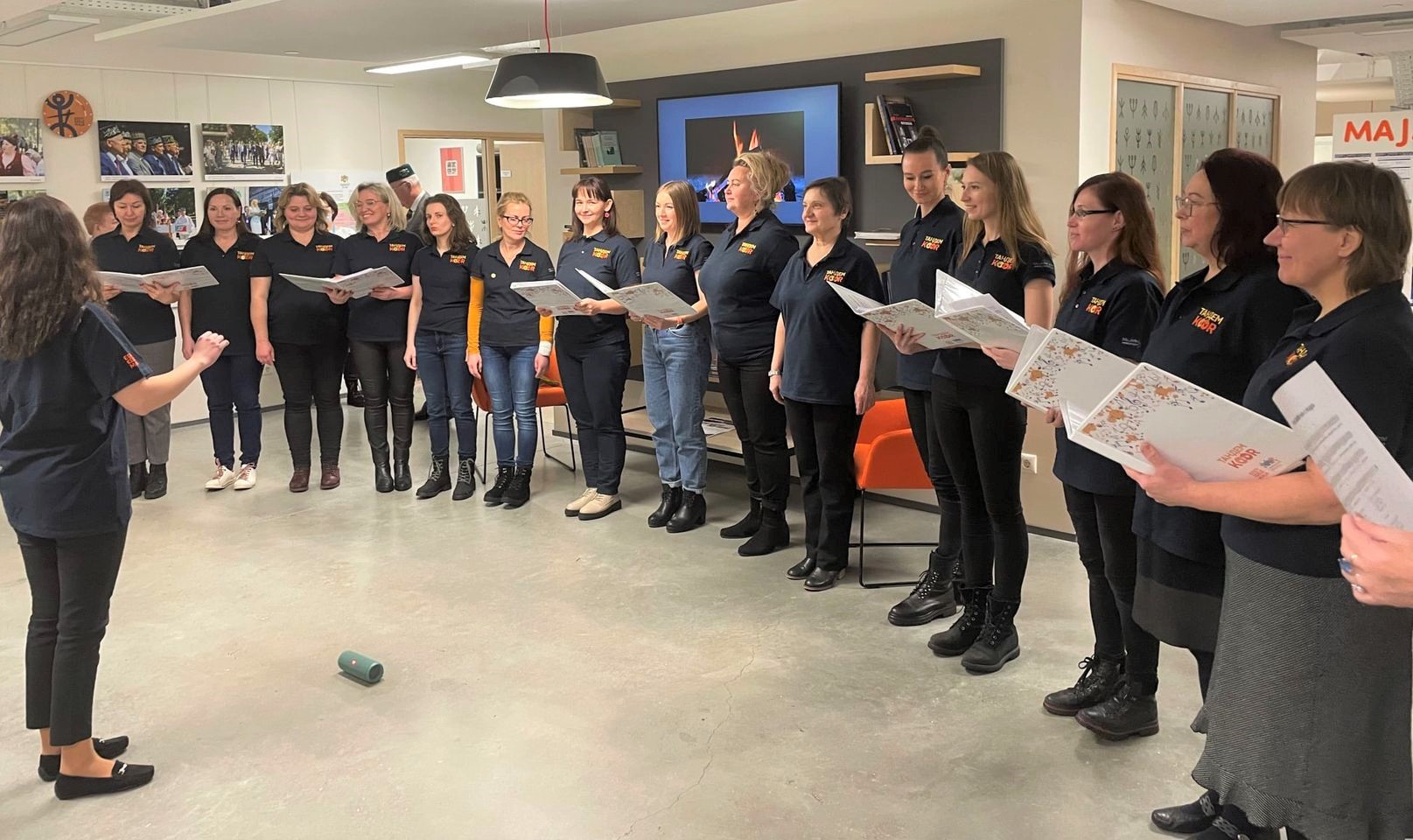
In February, sixteen new groups with a total of 256 learners started their language studies at the Estonian Language House in Narva, with special courses of pronunciation and Estonian culture also provided. New courses language skills were added: playful grammar for beginners, journeys through Estonia, and a debate course.
In March, Signe Viilop, regional coordinator of Lüganuse rural municipality, joined the team of the Estonian Language House in Narva. She will be leading creating of an official branch of the Estonian Language House in Kiviõli. The house will be providing a custom-made language-learning solutions for free for 250 learners, as well as other activities for practising language skills in a pleasant atmosphere.
The Estonian Language House in Narva won the award of the best cultural event of the year for organising the ‘Sõida tasa üle silla’ sing-along party, as well as an award for implementing innovative ideas in language learning in a competition for the shapers of the reputation of the Estonian language. One example of the novel ideas are the podcasts which involve the teachers Julia and Pille discussing the nuances of spoken Estonian and comparing the peculiarities of the grammar and vocabularies of Estonian and Russian in a cheerful digital format, but also the activities of the second season of the Tandemkoor choir, which support language learning.
The Estonian Language House in Tallinn opened new communication channels and launched cooperation with the city of Maardu
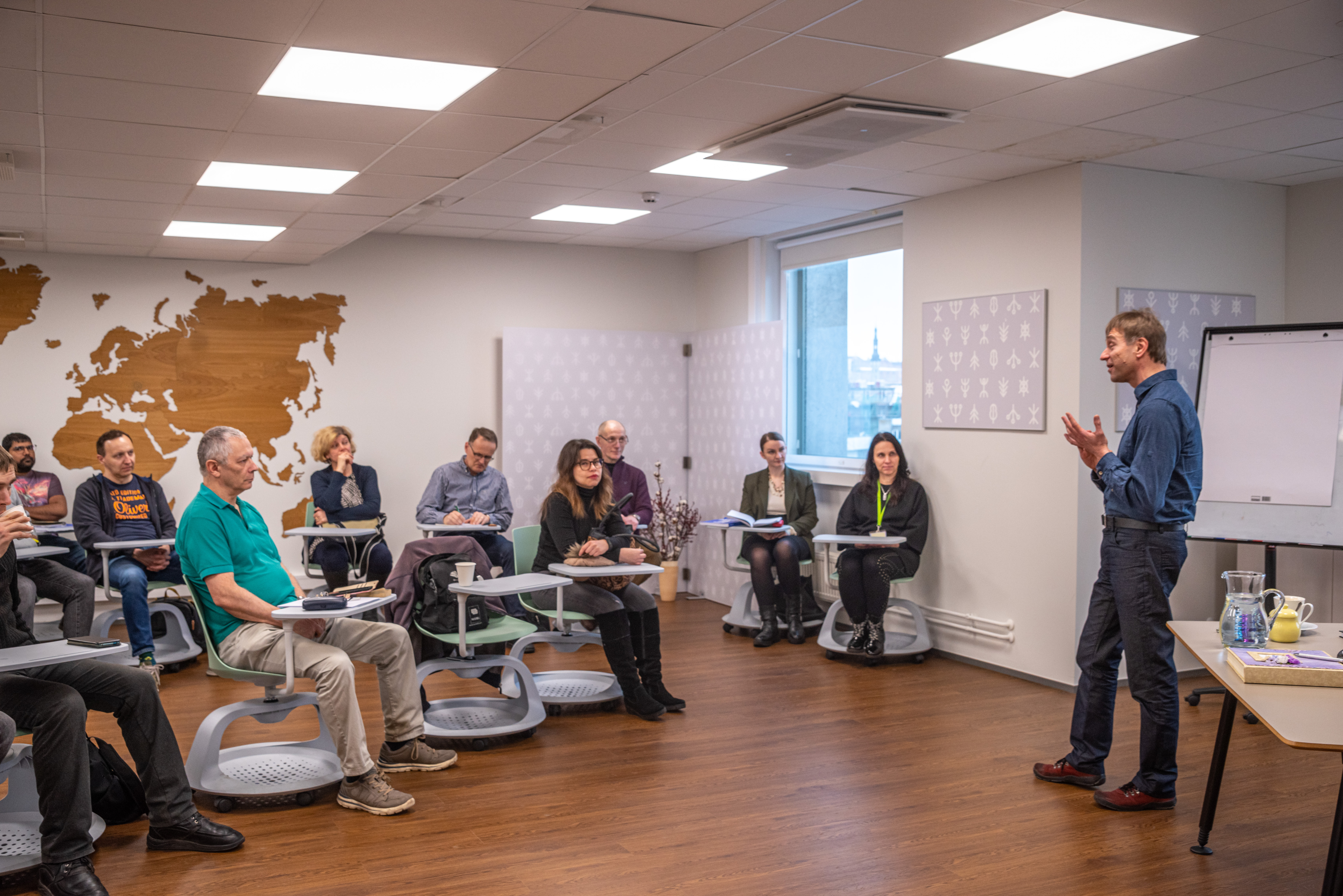
The Estonian Language House of Tallinn has been working hard to get closer to our clients. Information about the activities of the language house has reached more people thanks to opening a Facebook page of the house, keeping a blog, and opening the self-service environment of the Integration Foundation.
In April, active cooperation begins with the educational leaders of Maardu to motivate the teachers of the kindergartens and schools of the city to take part in the activities of the Language House in Tallinn. Another larger-scale project, ‘School for Parents’ (‘Lastevanemate kool’) was launched with the Tallinn Kuristiku Gymnasium to support the parents of the children attending the language immersion class in their adjustment with the Estonian language and cultural space.
In the light of the Year of Libraries, the special course ‘Let’s write together’ (‘Kirjutame koos’) has been very well received and has involved exciting meetings with writers in libraries as well as other cultural institutions – get-togethers with David Vseviov at the Vabamu Museum of Occupations and Freedom, with Adam Cullen in the Black Ceiling Hall of the Estonian Writers Union, with Loone Ots in the Kännukuke library, and with Valdur Mikita in the Estonian Language House in Tallinn. There are different activities offered for practising Estonian language for learners with very different interests, though.
In the summer period, the Estonian Language Houses will be offering various different fun options for practicing the language
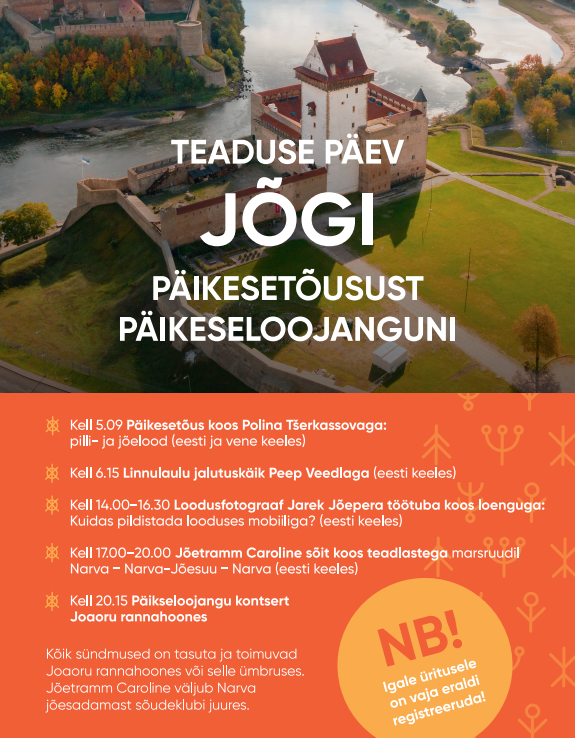 As soon as the warm summer days arrive, we will be offering more opportunities for practising language skills in the open air – trips, hikes, tours, as well as camps in Narva, Tallinn, and all over Estonia.
As soon as the warm summer days arrive, we will be offering more opportunities for practising language skills in the open air – trips, hikes, tours, as well as camps in Narva, Tallinn, and all over Estonia.
On 6 May, the Language House in Narva is already expecting everyone interested to attend the A Day of Science "River" in Narva, in which the best-known scientists in Estonia will be helping to study our surroundings, get to know the river Narva and its residents, as well as those living on the banks of the river: birds, bats, and people. Trips, lectures, and concerts will be taking place. Language learners are also welcome to take part in the language hikes introducing exciting places in Ida-Viru County and in the Estonian-Russian double camp, in which the participants will be helping one another to learn and practise Estonian and Russian.
In June, the Estonian Language House in Tallinn will be organising trips to the islands of Aegna and Prangli for language learners, as well as a language camp in Lahemaa, with the ‘Language learning at the Maritime Museum’ (‘Keeleõpe Meremuuseumis’) communication club taking the participants on a boat tour on the Tallinn Bay. Trips to enrich the spoken language will also be organised in August, an Estonian-English double camp will take place in Palamuse, and a trip will be undertaken to the rose garden and manors of Põltsamaa. The clients are also welcome to enjoy the summer weather while taking part in other follow-up activities, practising Estonian, and finding new friends.
The event calendar of the language houses can be found here: www.integratsioon.ee/en/kalender. The language-practising events can be registered to via the self-service environment where all events of the current month are open for registration and the events of the following month are displayed for making plans.
The exciting projects of the language houses can also be kept up with on Facebook: become a follower of the language houses of Tallinn and Narva!
We can recommend materials for learning Estonian independently!
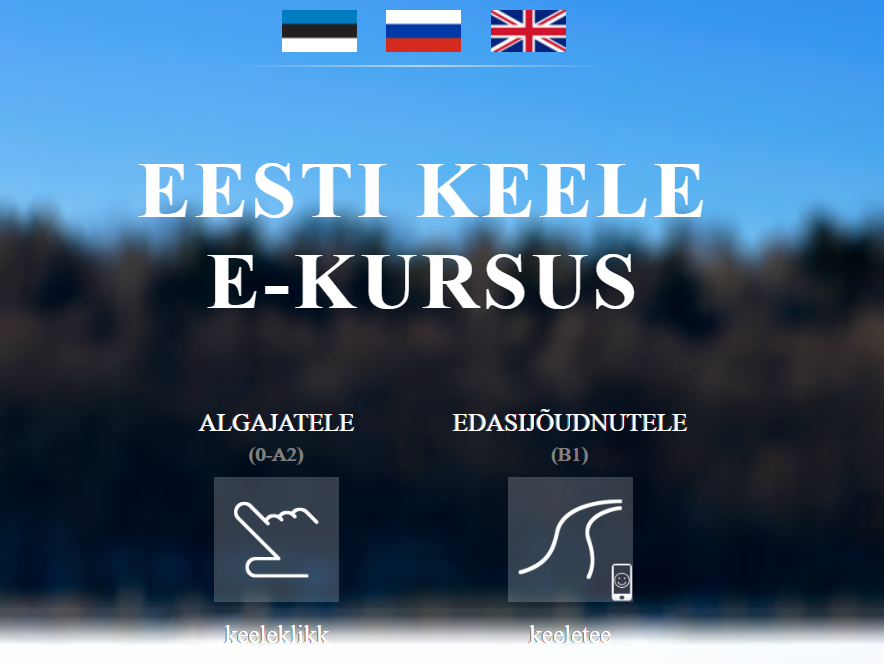
For those who would like to learn Estonian independently, there are plenty of computer- and smart device-based learning materials to assist complete beginners, as well as advanced learners.
We have collected a selection of free materials for learning the Estonian language on our website: www.integratsioon.ee/en/independent-study-and-materials
Those applications and materials will assist in independent learning, support those taking part in language courses, and provide a good opportunity for keeping one’s language skills fresh during the summer holidays.
A film and book will be released on the initiative of the Estonian Language House in Narva
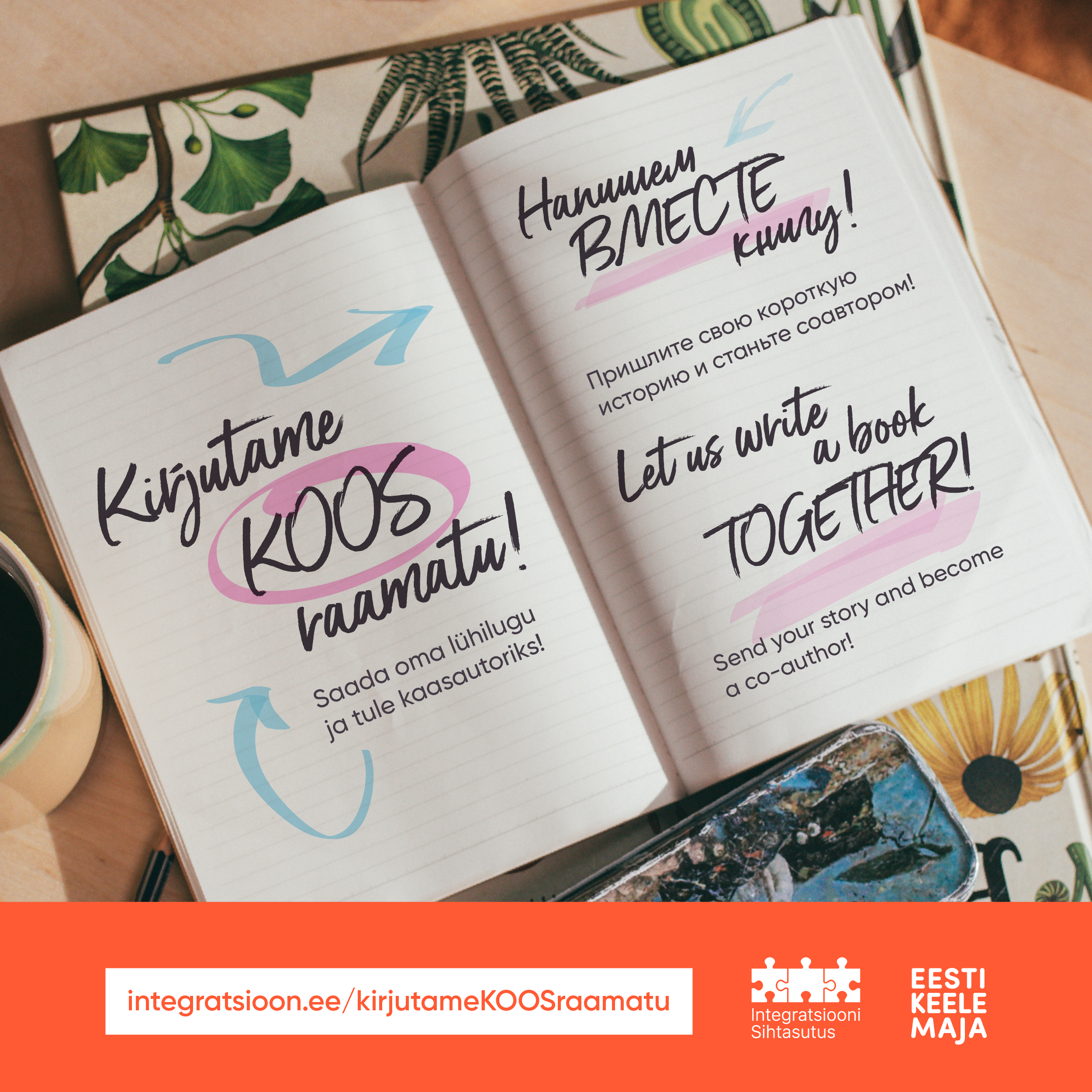
Two exciting projects were launched at the language house in Narva in March, which will result in the release of the short feature film Valik (Choice) about events in Narva in 1999 and 2017 by autumn, as well as a book to support language learning which tells a story of different cultures coming together.
On 27 March, the film academy of the Estonian Language House in Narva was launched, which will be providing the Estonian language learners knowledge on cinematography and acting and give them a good opportunity for practising Estonian. The participants will be able to practise expressing themselves under the guidance of professionals in the weekly meetings and finds new contacts among the people of Narva as well as the film scene. The best graduates of the school will be given roles in the short feature film Valik (Choice), which will be released this autumn. The main group is now closed for new learners, but those interested can still join as listeners.
We would also like to invite you to attend the ‘Let us write a book TOGETHER!’ (‘Kirjutame KOOS raamatu’) joint project and send us short, memorable stories about contacts between Estonians and representatives of other cultures. The stories will be complied into a compelling book of real-life situations which will also assist those learning Estonian. Both Estonians and people whose mother tongue is not Estonian are welcome to participate. The stories should be submitted by 15 May 2022.
The self-service environment of the Integration Foundation is now open
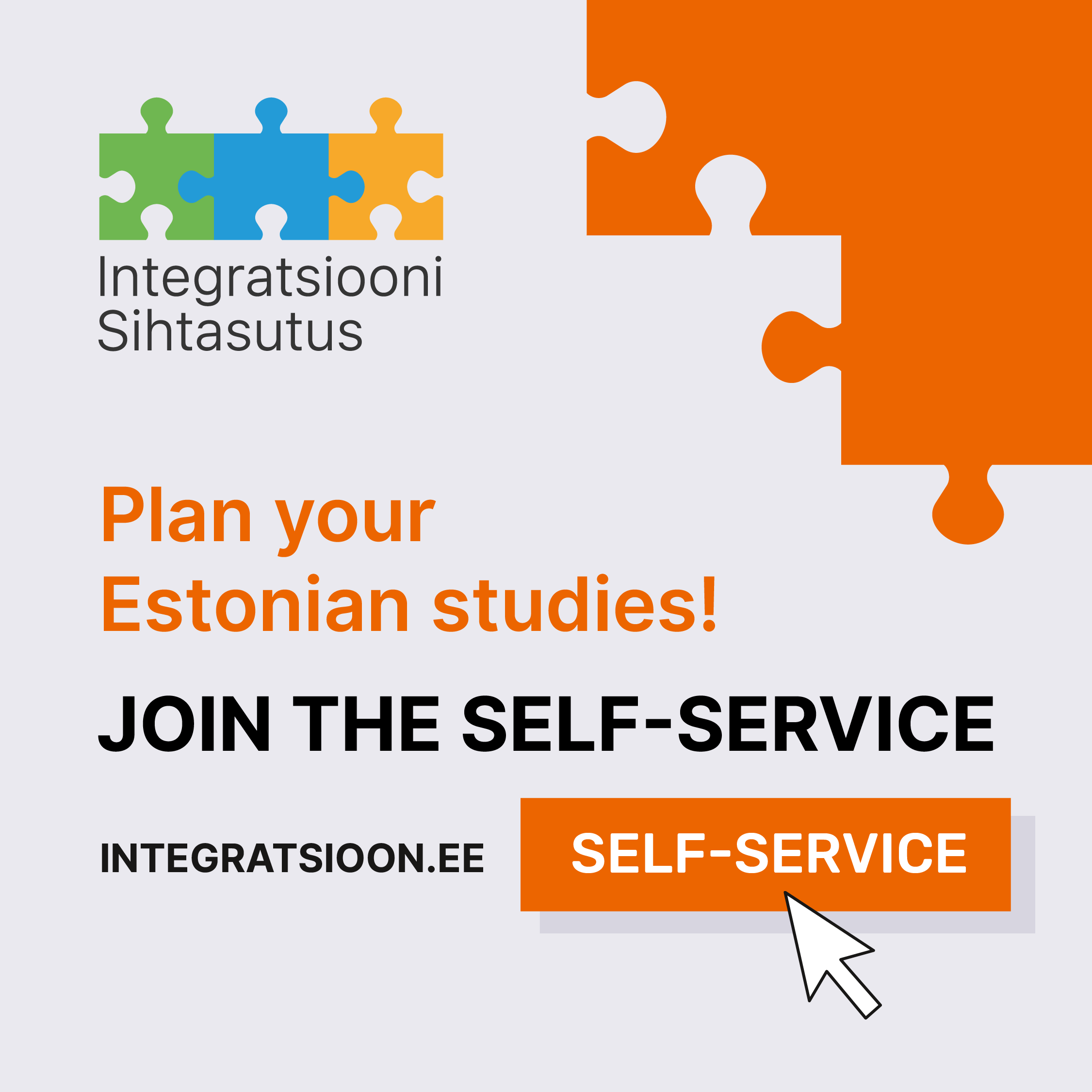
We opened a self-service portal on the website integratsioon.ee, through which users can conveniently plan their language-learning and register for Estonian language courses, events for practicing language skills, and other services.
‘The self-service portal gives language learners the opportunity to better orient in the free Estonian language-learning opportunities offered by the Integration Foundation, to select those that match their language proficiency level, location, and time preferences, and to register at a time convenient to them. Automatic notifications of new services added are also available. The user will have an overview of the learning activities they have completed, their results, and upcoming events.
To enter the self-service portal, users have to identify themselves with an Estonian ID-card, Mobile-ID, or Smart-ID. The counsellors of the foundation can help customers who do not have access to the self-service portal choose language-learning opportunities and register for them – call 800 9999 free of charge or send an email to info@integratsiooniinfo.ee. Further information is available at: www.integratsioon.ee/en/iseteenindus.
The Integration Foundation is looking forward to applications for integration awards
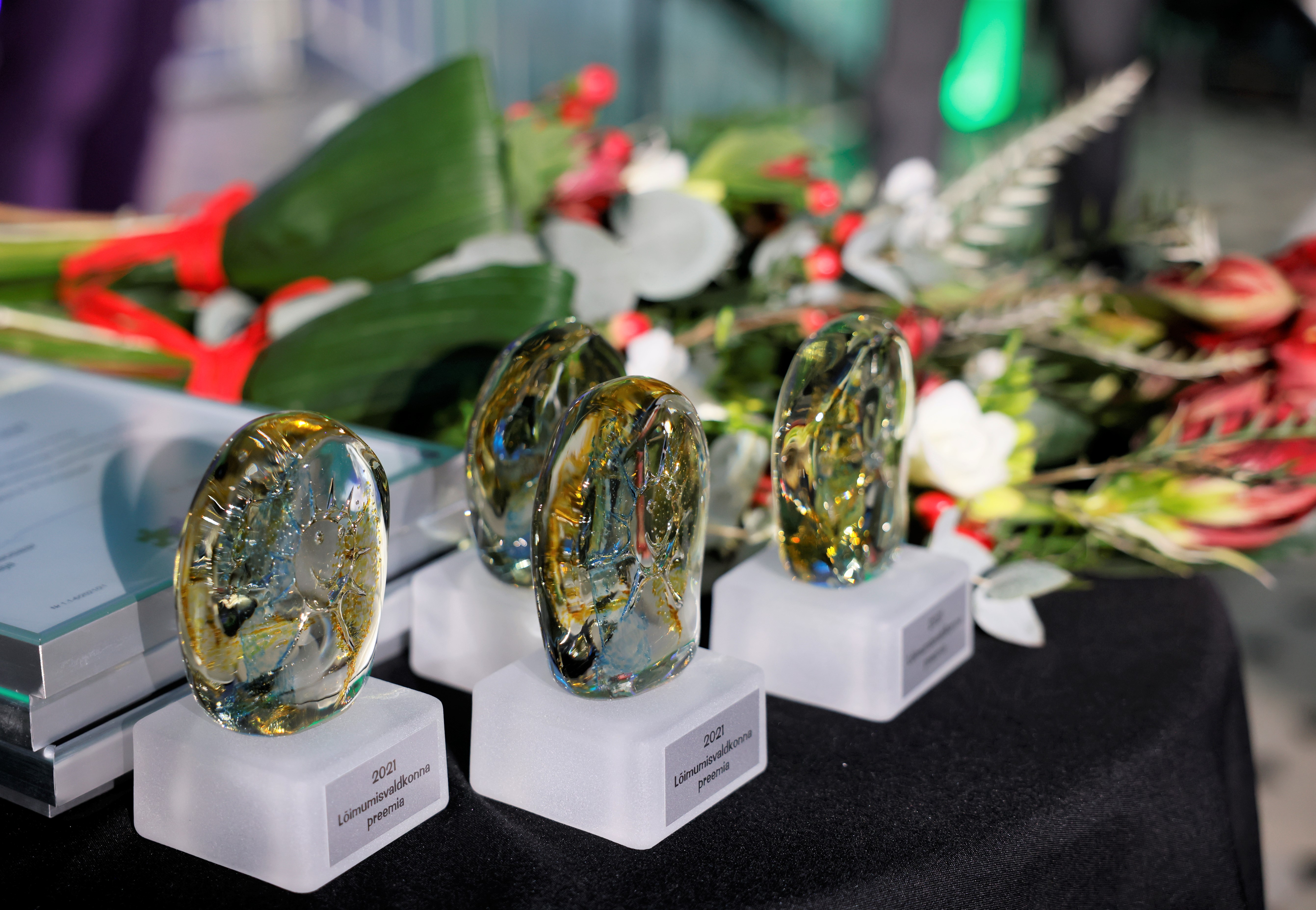
Applications are welcome to the Integration Foundation for receiving awards for projects carried out in the field of integration. The deadline for applications is September 1st.
The integration prize fund is EUR 4,000. The prizes will be awarded in four categories and the best project promoter of each category will receive a prize of EUR 1,000.
Applications for awards can be submitted in the following categories:
- The building blocks of integration (acknowledging the cultural diversity of Estonia and the targeted long-term activities to promote integration);
- Bridge Builder of the Year (implementation of cooperation projects between native Estonians and non-Estonian residents);
- Message Carrier of the Year (development of attitudes supporting integration through the media);
- Spark of the Year (implementation of outstanding activities in the field of integration).
Applications can be submitted in several categories, but in this case, different projects or activities must be proposed in each category. The competition is for the projects or activities which were initiated on or after 1 September last year and will be completed by the end of August this year at the latest; there are no time limits applicable to the category of ‘The building blocks of integration’.
The full information about the competition and application form can be found HERE (in Estonian)
The awards are funded by the Ministry of Culture. The names of the prize-winners will be published on the website of the Integration Foundation and the awards will be presented at the end of 2022.
Information days on migration, adjustment, and integration at county centres
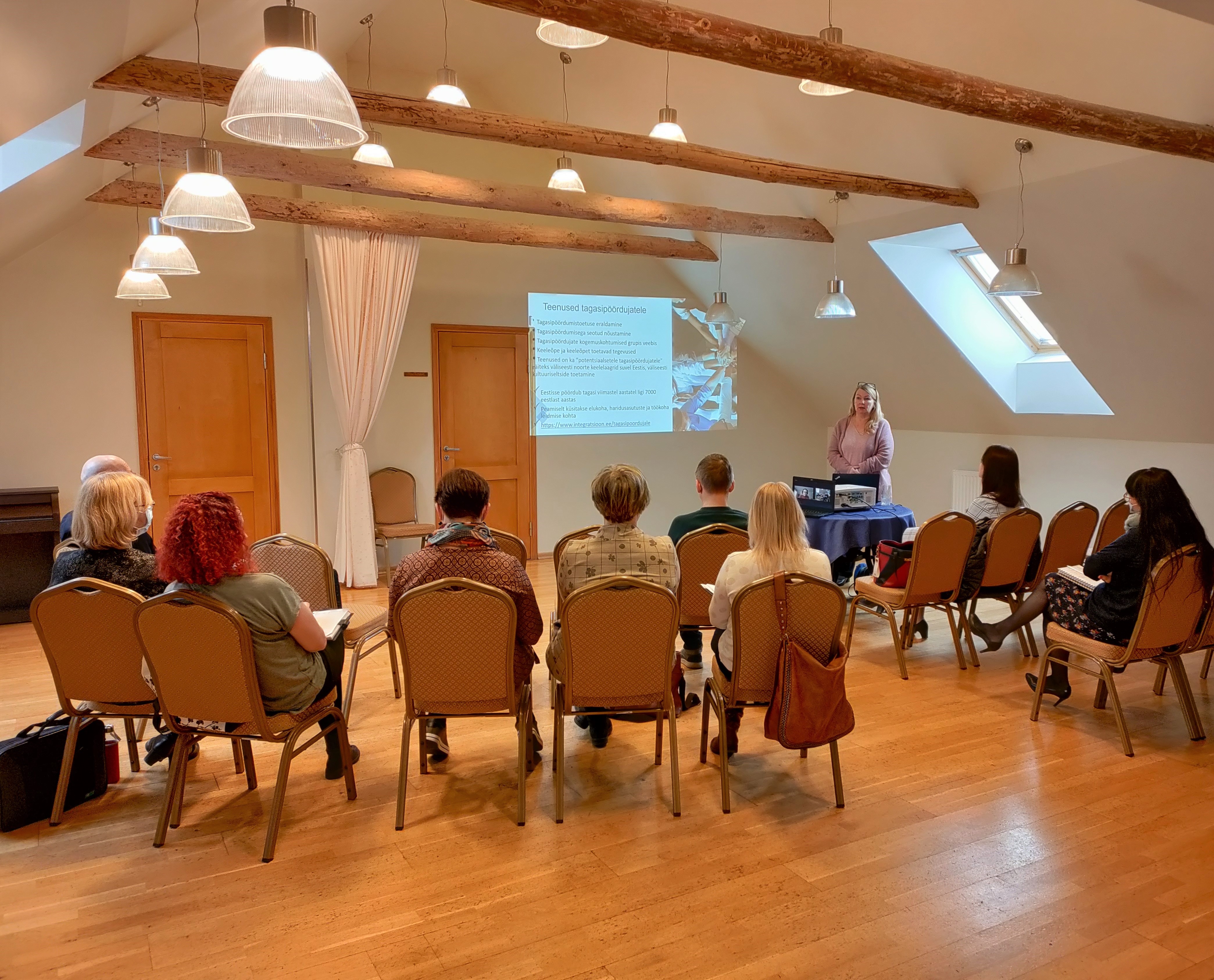
From March, information days on migration, adjustment, and integration are being organised all over Estonia, at which the Integration Foundation, among others, introduces its counselling services and materials available to the employees of local authorities and the agencies governed by them.
The purpose of the information days is to support the employees of local authorities and their divisions in their daily work, introducing the activities and opportunities provided by the state to returnees, new migrants, and permanent residents who are not yet extensively integrated. For example, we will be speaking about the opportunities for learning Estonian, the adjustment programme, residence permits, and benefits and counselling services for specific target groups, as well as introducing the online environment Linda, where all those services come together.
Information days have already taken place in Põlva, Jõgeva, Võru, Valga, and Rapla Counties. Information days will be held in all counties this year.
The information days are organised by the Johannes Mihkelson Centre in cooperation with the Ministry of the Interior and the Ministry of Culture and are co-funded by the European Union via the Asylum, Migration and Integration Fund and the Ministry of the Interior.
There are several ongoing public procurements and calls for proposals
The public procurements ‘Estonian constitution and citizenship training’, ‘A1-level Estonian studies for beneficiaries of temporary protection’ and ‘Estonian language courses for the little-integrated permanent residents and new migrants living in Estonia’ have been opened to organise language studies. The purpose of the public procurements is to find partners for ordering the service of organising an international conference on integration and for organising a language camp for foreign Estonian youths. Today is the deadline for submitting applications in the call for proposals entitled ‘Sports and cultural events promoting entrepreneurship in Ida-Viru County’.
Information on the announced calls is published on the Integration Foundation's website.
Our calendar
Information on events that take place by our organisation, participation or support, can be found in the calendar published on our website.
Our news
You can read the latest announcements of the Integration Foundation in the news section of our website and on the Facebook page of the Integration Foundation or the Estonian Language House.
